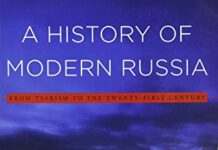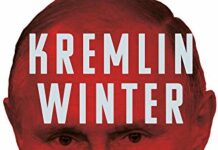
Ebook Info
- Published: 2011
- Number of pages: 424 pages
- Format: PDF
- File Size: 5.68 MB
- Authors: Robert Service
Description
In the immediate aftermath of the Revolution, the Western powers were anxious to prevent the spread of Bolshevism across Europe. Lenin and Trotsky were equally anxious that the Communist vision they were busy introducing in Russia should do just that. But neither side knew anything about the other. The revolution and Russia’s withdrawal from the First World War had ensured a diplomatic exodus from Moscow and the usual routes to vital information had been closed off. Into this void stepped an extraordinary collection of opportunists, journalists and spies sometimes indeed journalists who were spies and vice versa: in Moscow Britain’s Arthur Ransome, the American John Reed and Sidney Reilly ‘Ace of Spies’ all traded information and brokered deals between Russia and the West; in Berlin, Paris and London, the likes of Maxim Litvinov, Adolf Ioffe and Kamenev tried to infiltrate the political elite and influence foreign policy to the Bolsheviks’ advantage. Robert Service, acclaimed historian and one of our finest commentators on matters Soviet, turns his meticulous eye to this ragtag group of people and, with narrative flair and impeccable research, reveals one of the great untold stories of the twentieth century.
User’s Reviews
Reviews from Amazon users which were colected at the time this book was published on the website:
⭐Readers of twentieth-century general histories, especially of the world wars, will eventually become pretty well convinced that they know enough about the Russian Revolution to put it in perspective. It was, in a nutshell, a “populist” reaction to a heedlessly oppressive czarist regime which frosted its own pestilential cake with its involvement in the international chaos that was World War One. Enough said.That’s what I thought, and I was (again) wrong. Congenitally uncongenial to trying to follow the bouncing “iev’s” of Russian names and “grad’s” of places, I nonetheless bit the curiosity bullet and undertook “Spies and Commissars,” and if it wasn’t a treat, it was a very edifying treatment, of my ignorance of what really transpired, that is.The most revelatory aspect of this compelling, if somewhat dry, work is its demonstration of just how haphazard was the whole Bolshevik project, largely made up by Lenin and Trotsky as they went along, their only lodestar their hard-bitten and unwavering devotion to the theory of their cause, the details to be filled in as events warranted. One is again compelled to ponder the supreme irony of the German government enabling Lenin’s passage from Switzerland into Russia as a means of destabilizing the domestic situation only to realize too late that it had tossed an incendiary into the sawdust bin that was the czar’s tottering regime.Conceived from its first ideation as a dictatorship in which the lives of the masses were to be controlled down to the finest detail by their select betters, the movement confronted a Russian people who were in no position to conjure an alternative, to say nothing of not having the parliamentary or other democratic model on which to build it. And so they fell easy prey to these madmen who, if they lacked any scintilla of human feeling, took a back seat to no one in their bloody-if-need-be devotion to the cause.It is true that for a very brief while it appeared that the reactionary “Whites” might dislodge Lenin and his crew, but some combination of internal bickering, lack of military resources (exacerbated by the Allies’ exhaustion at the end of WW I), and the surprisingly energetic resistance mounted by the “Reds,” soon dispelled any notion of success. Indeed, as Service very well describes, Russia was at one time virtually surrounded by hostile forces, but lacking coordination and, well, will, they eventually dissipated and then completely withdrew. He also makes a convincing argument that in any case the Whites likely would not have been able to fashion a durable governing polity even if they prevailed on the battle field. And perhaps it goes without saying that the erstwhile WW I allies could have quashed the whole movement (or strangled it in its crib in Churchill’s formulation) had they the possessed the will to do so, but they didn’t.It’s probably impossible for any historian to satisfactorily treat all of the conditions that fostered the incubation, birth and ultimate hegemony of the Soviet movement: the Revolution, yes, but less so its tumultuous aftermath. But Service goes a long way in the effort. Among other things, he does an excellent job of describing the state of the common people in the period and thus why they were so susceptible to Lenin’s machinations. Part and parcel of this vulnerability, of course, was (and is) the citizens’ devotion to the Mother Land against all foreign intriguers, real or imagined, and the seemingly infinite, if not entirely unique, capacity for suffering for country. If nothing else, the book serves as a useful reminder as today we watch Russia struggle with international sanctions and falling energy prices that any hope of the overthrow of Putin and his kleptocracy because of the country’s economic doldrums is a wildly remote possibility.Service also does a very good job of describing the involvement of Americans in these early years of the Bolshevik takeover, and if you’ve ever seen the movie “Reds,” Warren Beatty’s wonderful portrayal of Jack Reed and Louise Bryant and their bittersweet love affair with each other and with Communism, you’ll see that Beatty pretty much got it right, painting Reed as a naïve dreamer who died before realizing that Communism was an answer to a question no one had asked.The book concludes with the death of Lenin and the ascendancy of Stalin, the neat substitution of a tyrant of the first order for the contemplative, if superlatively callous, theoretician of the movement. That the first had succeeded so well against seemingly impossible odds meant in the final analysis that it would be left to the embodiment of evil to demonstrate the innate malevolence and economic folly of Communism, but not before it consumed tens of millions of lives without bringing the Russian people any surcease of sorrow.In sum, Service’s book is both revelatory and, oddly enough, timely. I recommend it.
⭐For me, this was a different recounting of the early years of the Russian Revolution. Service does a good job of showing why the protagonists acted as they did, acting in the moment without the 2020 hindsight that readers bring to the subject. Both the Bolsheviks and the Capitalistic West act more on their beliefs than the facts. Not that they always had the facts, but both groups seemed to accept only those facts that agreed with their vision. Service’s explanation makes certain acts make sense, at least to the actors, if not to modern readers.A great choice of photos and an epilogue that tells us of the fate of many characters out this book over the top for me.
⭐Robert Service, along with Anthony Beevor, are my two favorite living historians. At this point, after the excellence of his Stalin, Trotsky, and Lenin biographies I will read anything he writes. Therefore, I was excited about this book and ordered it immediately. Here, he’s taking a special angle on his subject and not simply constructing a linear narrative. Much of the craziness that went on in Russia during the March and October revolutions of 1917 is his focus as is the ensuing civil war. The allies–England, the US, and France–had a large hand in the goings on in the USSR and even occupied portions of its landmass during the period after the Tsar’s ouster. We had various spies trying to relay information back to the Entente, but we were also testing to determine what methods for counter-revolution were available to us (not many!). Within this concise work are numerous personalities that most of us have never heard of before–including an Englishman who may have partially served as the inspiration for James Bond. Students of the Soviet Union will appreciate this book as it offers up extensive detail regarding an era rarely discussed in 2013. It also will appeal to laymen who love a thrilling tale by a master historian.
⭐While decent enough, this book should have been titled “Diplomats and Trade Ministers” rather than “Spies and Commissars”, because that is the main topic of the book. In fact, this book contains very little specific information about the activies of spies or commissars, and certainly no tales of derring-do. The book has interesting sections about the personal relationships between some of the Westerners who come to Soviet Russia for one reason or another and the Bolshevik leadership, but much of it is about various trade missions, political activities in Western countries, etc. As long as you aren’t expecting to actually read about Spies and Commissars, not a bad book, although it is more dull than its title would imply.
⭐It is interesting to read this book, having grown up during the Cold War. It gives you a perspective of the mind set of the founders of the USSR. The other interesting thing is that in this book you can see the ground being laid for the later purges in the 1930s under Joseph Stalin as well as the status of Eastern Europe after World War II.
⭐A nice, quick read about the early days of the Soviet Union. It gives short thrift to the civil war and the non-Bolshevik revolutionary parties, but does a nice job of covering the personalities that drove the country from the last days of the Great War to the 20s.
⭐The book gives a detailed look at the people on the ground at the beginning of the Communist era in Russia.
⭐The book was interesting but it very slowly began to weigh me down. Keeping all the Russian names in order finally defeated me. I hope you have better luck
⭐In October 1917, the Bolsheviks mounted a coup in Leningrad in which they led a revolution against the Provisional Government, introduced communism and governed for the next 74 years. So popular history might have it. If so, popular history would be wrong on nearly every point, as Robert Service expertly demonstrates.Most histories of the Russian revolution treat Lenin’s coup – and it was a coup rather than a genuine revolution – as the final chapter rather than an opening one. Our preference for nice clean dividing lines between historical eras is such that 1917-8 usually becomes the end of the story of the Romanovs and of WWI; what comes after is ‘Soviet history’.Except it wasn’t nice, it wasn’t clean and it certainly wasn’t the end of the revolution. Although the Bolsheviks had won power in Petrograd (as it was), control of the rest of the country remained up for grabs. Service’s book is excellent in detailing the crucial early years after the coup during which the communists fought to consolidate their government against their various foes – occupying forces and spy networks from the Allied governments, still hoping for Russia’s re-entry into WWI; the German army, desperate for men and supplies for the Western front; disparate counter-revolutionary ‘White’ forces; even Menshevik supporters on the Soviet councils.Service also keeps one eye focussed on the global picture, rightly reminding the reader that even when their regime was under tremendous pressure at home, Lenin and Trotsky still sought to spread revolution abroad. The international aspects – outside interference in Russia, Soviet attempts at subversion and revolution abroad, as well as their (simultaneous) diplomatic efforts at gaining recognition and trade deals – are well integrated into the book’s narrative and throw a different light on the troubled time.It is, as you’d expect for an expert on the Soviet Union, extremely well researched. Less predictably but pleasingly, it also comes with just the right amount of detail: enough to make the people and events come to life but not so much as to burden the story down. The portraits of the people involved are particularly well drawn. Overall, it’s accessibly written for the interested reader.I’d only make two criticisms. Firstly, there didn’t quite feel to be as strong a beating heart to the story as you’d expect for such dramatic events, perhaps because there are so many aspects to the events and because the chapters are relatively short. And secondly, the book trails off a little in its final chapters. The final one is a mix of conclusion and epilogue (before a formal postscript), but the penultimate is titled “the second breathing space”. Ideally, there should be something in between that provided a more definite conclusion to the story i.e. an overview of the Soviet Union that the Bolshevik triumph had created by 1922.For those reasons, I’ve given it four rather than five stars but all the same, Spies & Commissars is a very good read and anyone with an interest in Russian or wider international 20th century history should get a lot out of it.
⭐Lenin and Trotsky trying to get England and France to invade Russian empire is a particularly revealing feature and puts pay the the Bolshvik lie of Russia as besiged
⭐This book is of great interest as Russian history is a field of special interest. Loo forward to reading in due course
⭐ITEM AS DESCRIBED THANKS
⭐This book is an excellent exposition of the growth of communisim in Russia. It clearly sets out the grounds of Bolshevik and communist suspicions regarding the West, which first began in 1917 with the view by the West that Russia must stay in the war on the Eastern front at all costs, regardless of Bolshevik leadership and politics. The Western skullduggery which followed that view is fully exposed and Service explains, very clearly, the subsequent grounds for Soviet caution against ANY future West intentions. Service has a good style of putting what could be a dry subject across to all readers. Fast paced, but not overly detailed, yet with more than enough substance to fully inform, this book is easy to read and absorb. Once again, Service has excelled. Highly recommended reading to anyone interested – however slightly- in the rise of Communism, Soviet Russia and its enduring stamp on world history, even today.
Keywords
Free Download Spies and Commissars: Bolshevik Russia and the West in PDF format
Spies and Commissars: Bolshevik Russia and the West PDF Free Download
Download Spies and Commissars: Bolshevik Russia and the West 2011 PDF Free
Spies and Commissars: Bolshevik Russia and the West 2011 PDF Free Download
Download Spies and Commissars: Bolshevik Russia and the West PDF
Free Download Ebook Spies and Commissars: Bolshevik Russia and the West





